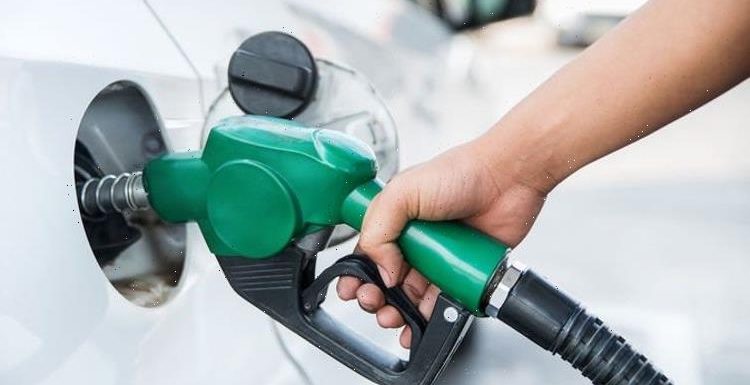
Petrol prices: Howard Cox calls for cuts to fuel duty
We use your sign-up to provide content in ways you’ve consented to and to improve our understanding of you. This may include adverts from us and 3rd parties based on our understanding. You can unsubscribe at any time. More info
In a report scrutinising the Government’s Downstream Oil Resilience Bill, the cross-party business committee has said ministers should be given the appropriate powers to maintain the UK’s fuel resilience and to protect national interests. The bill gives the Government power to get information from companies, insist that they keep critical infrastructure operating and provide financial assistance to them. They come ahead of the ban on sales of new petrol and diesel cars from 2030.
It has raised fears that petrol stations could be forced to shut due to a fall in demand, meaning it could be difficult for drivers to get hold of supplies in their local area.
MPs on the committee said they supported a bill allowing Government officials to order suppliers to send fuel to areas in need.
It comes after a shortage of lorry drivers already caused carnage for deliveries of fuel across the country.
The report said: “Whilst the industry itself has historically worked well with the Government to effectively address individual, short-term and isolated crises, longer-term changes in the market (caused, for example, by the net zero transition) presents a more fundamental threat to the sector’s resilience, and therefore to the UK’s fuel supply.


“The Government should be equipped with the appropriate powers to enable it to maintain the UK’s fuel resilience and to protect the UK’s national interests.”
Despite backing the bill in principle, MPs urged the Government to be clearer about when and why the powers will be used, heeding industry warnings that the rules could deter investment in the UK.
For example, it said that powers to order fuel to be redirected to where it is needed are phrased in “extremely wide” and “unusually general” terms.
The UK Petroleum Industry Association (UKPIA) warned of the “need to have a firm understanding of when and how this may occur to avoid reducing confidence on the part of companies to invest given the risk of government intervention”.

Prime Minister Boris Johnson has vowed to make tough decisions to help the UK reach its legally binding net zero targets of 2050.
It comes after the plan was previously called into question by a group of MPs, who say the transition represents a “huge challenge” for the country, and that the departments responsible for it have “lacked a clear, published plan” to set out how it will happen.
The criticism came from the Public Accounts Committee (PAC), which evaluates the effectiveness and value of Government proposals and services.
The PAC report said in May that although the Government has set “ambitious targets” for the transition, there are still big hurdles to overcome, including increasing the uptake of electric cars among buyers, lowering their cost, and upgrading the UK’s charging network.
DON’T MISS
Brexit Britain on cusp of huge win as ‘game-changing’ tech unveiled [REVEAL]
Scientists warn ‘toxic’ WW2 shipwreck risks ecological disaster [REPORT]
Biden torn apart: Energy prices ‘skyrocket’ as President ‘silent’ [INSIGHT]


Under current plans, the sale of new petrol and diesel cars will be banned from 2030, albeit with some hybrid cars given a stay of execution until 2035.
So far in 2021, electric cars have accounted for 7.2 percent of sales – up from 4 percent across the same period in 2020.
The cost of buying an electric car is one of the biggest issues, with the committee saying it is “not persuaded that the upfront costs are low enough for many,” and pointing out that there are currently only 13 electric car models costing less than £30,000.
Any fully electric car which costs less than £35,000 qualifies for the Government’s plug-in car grant, currently worth £2,500.
Source: Read Full Article